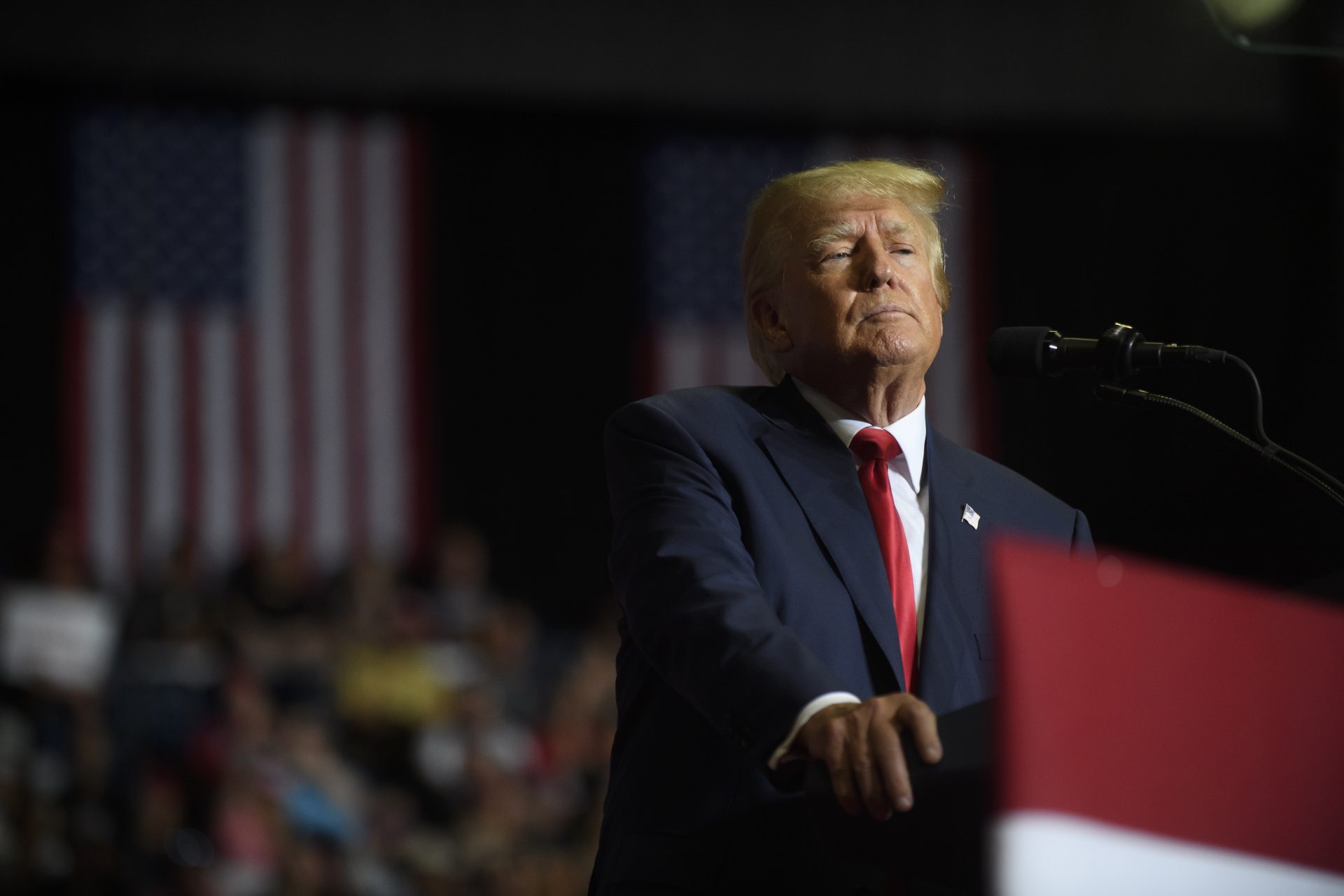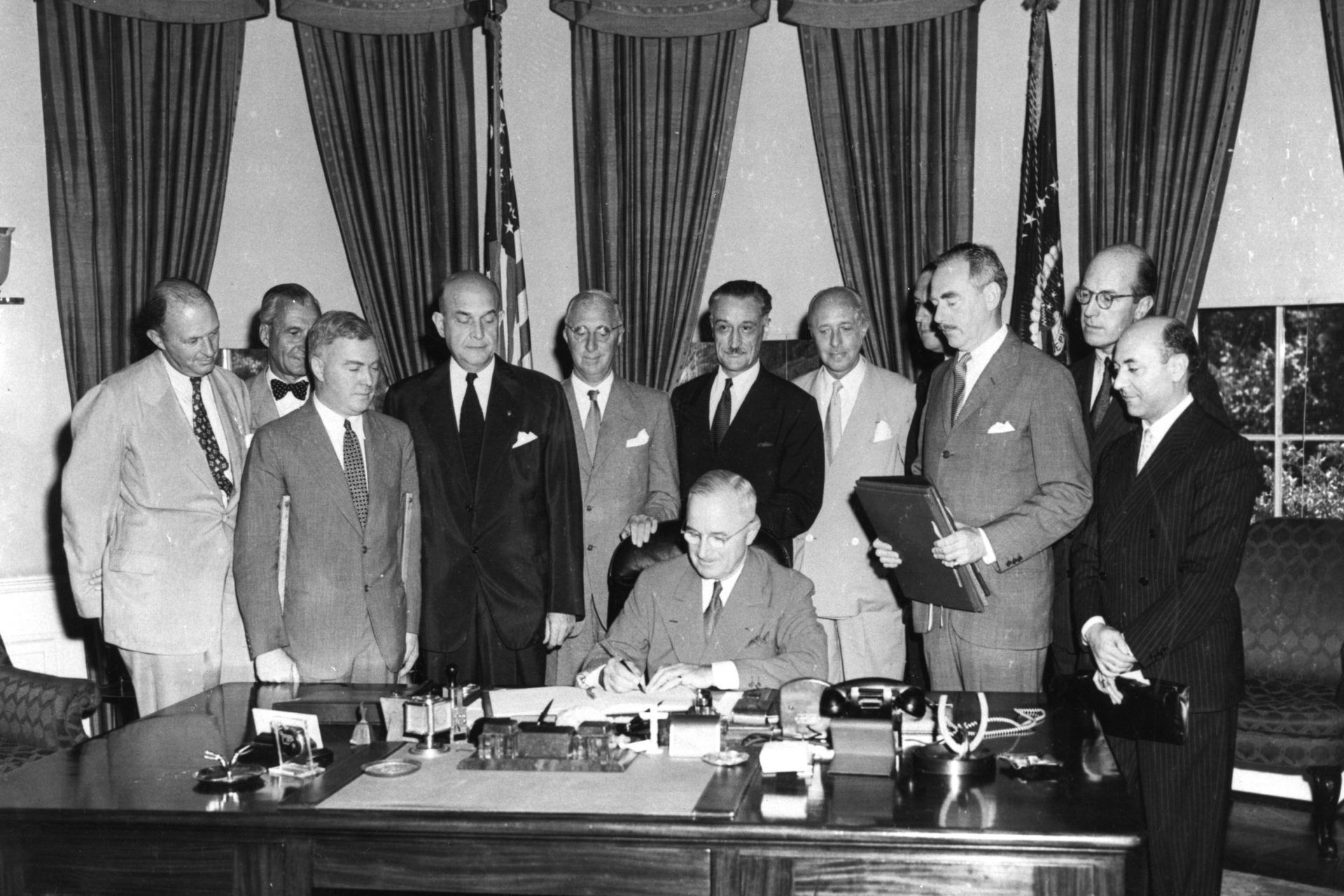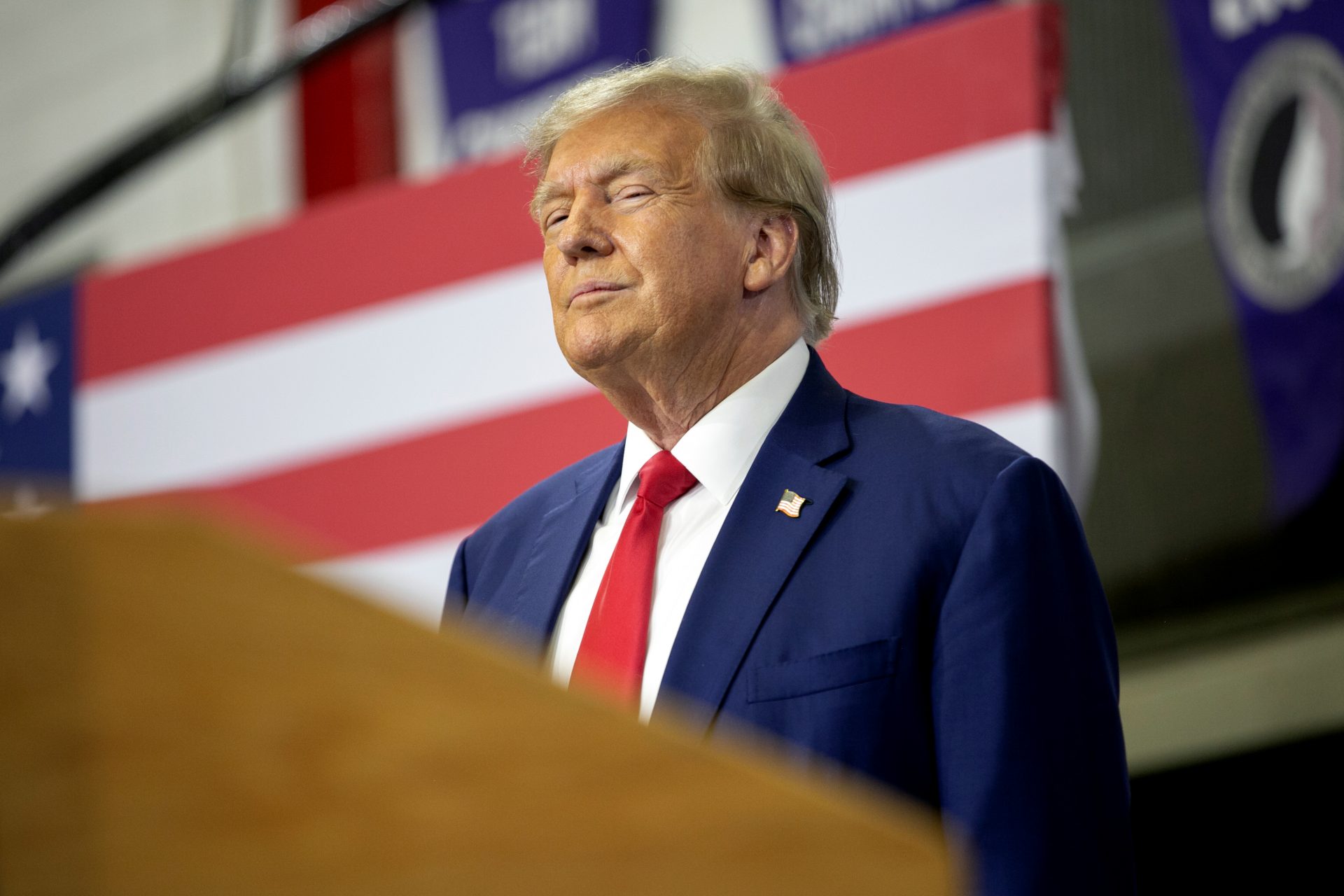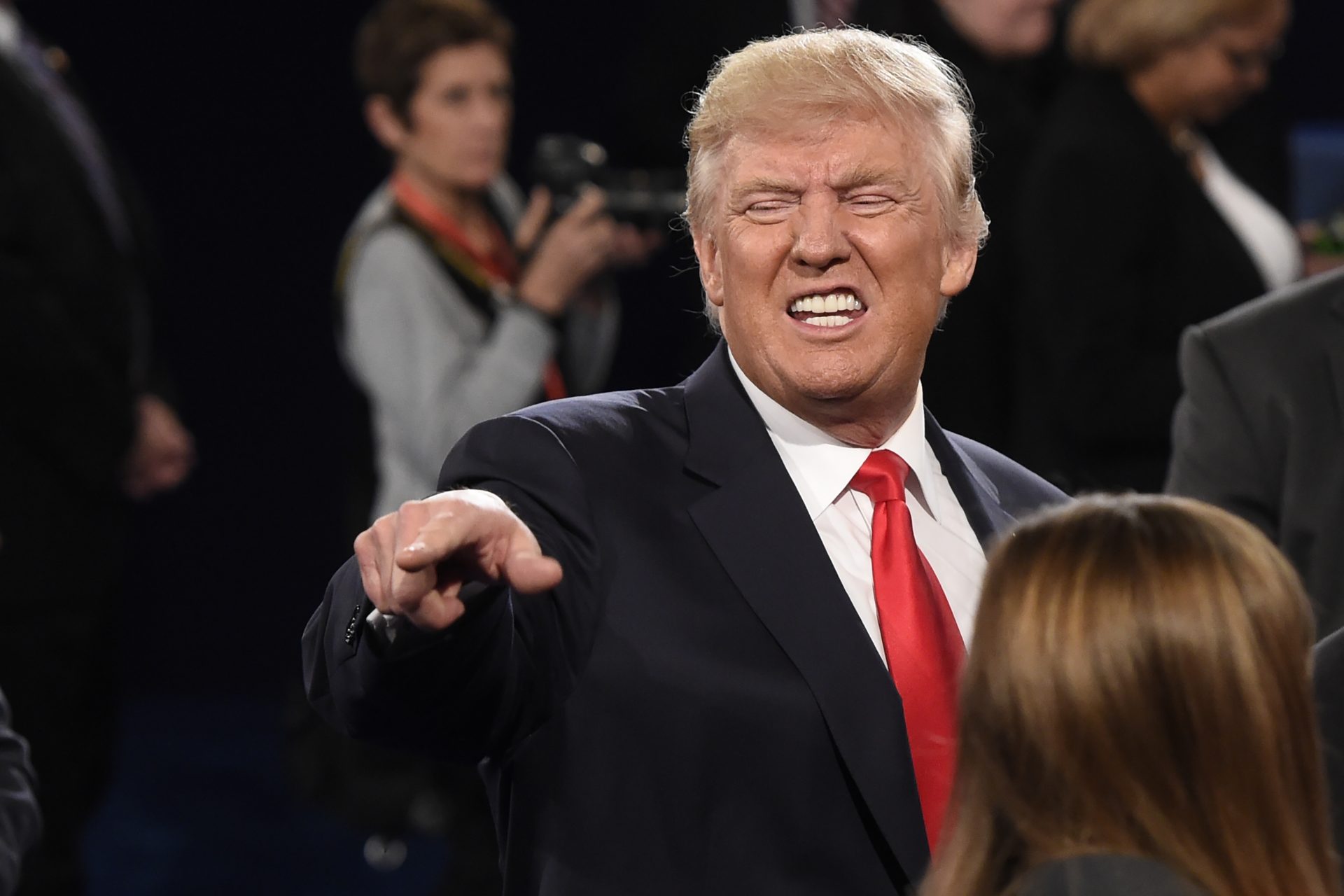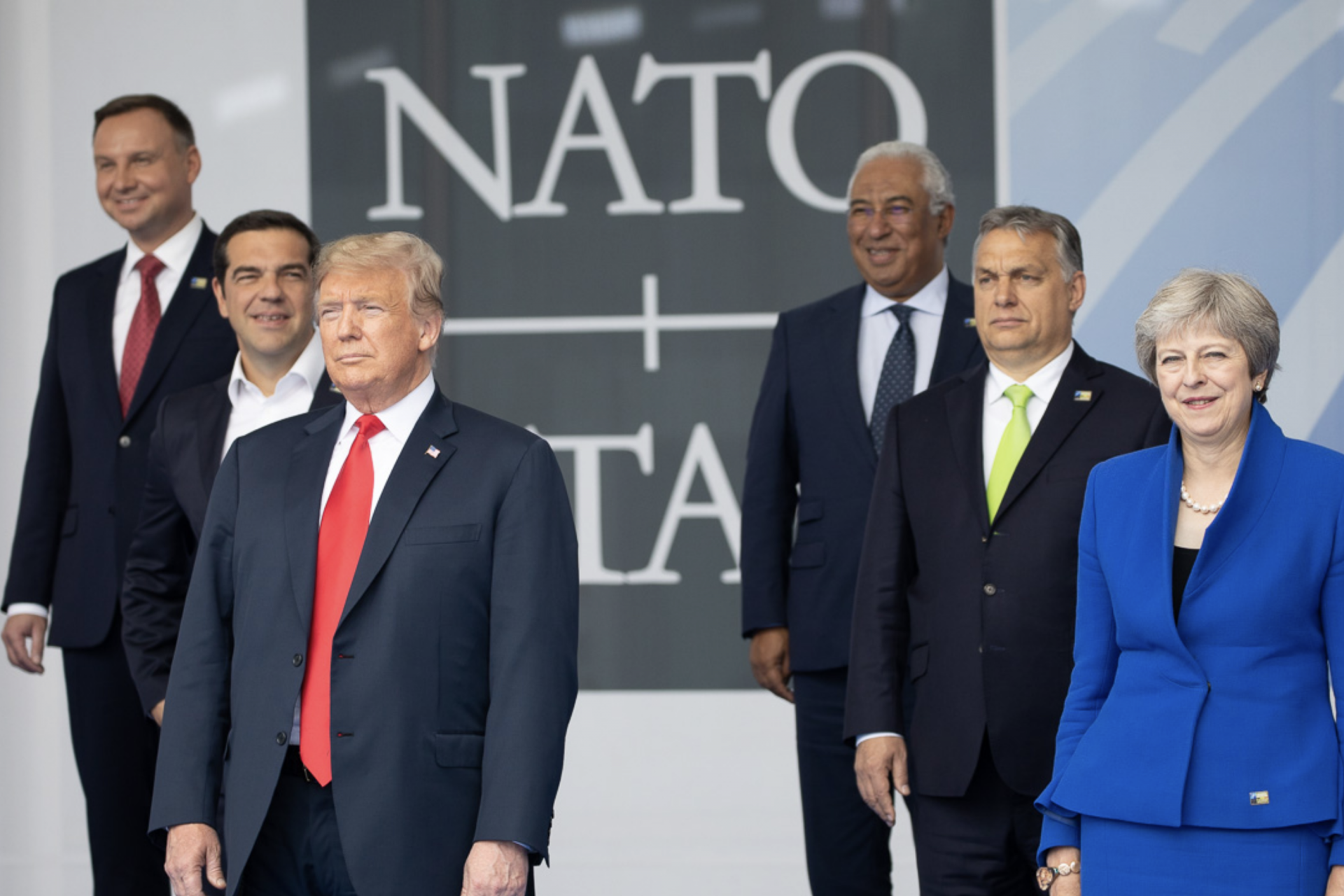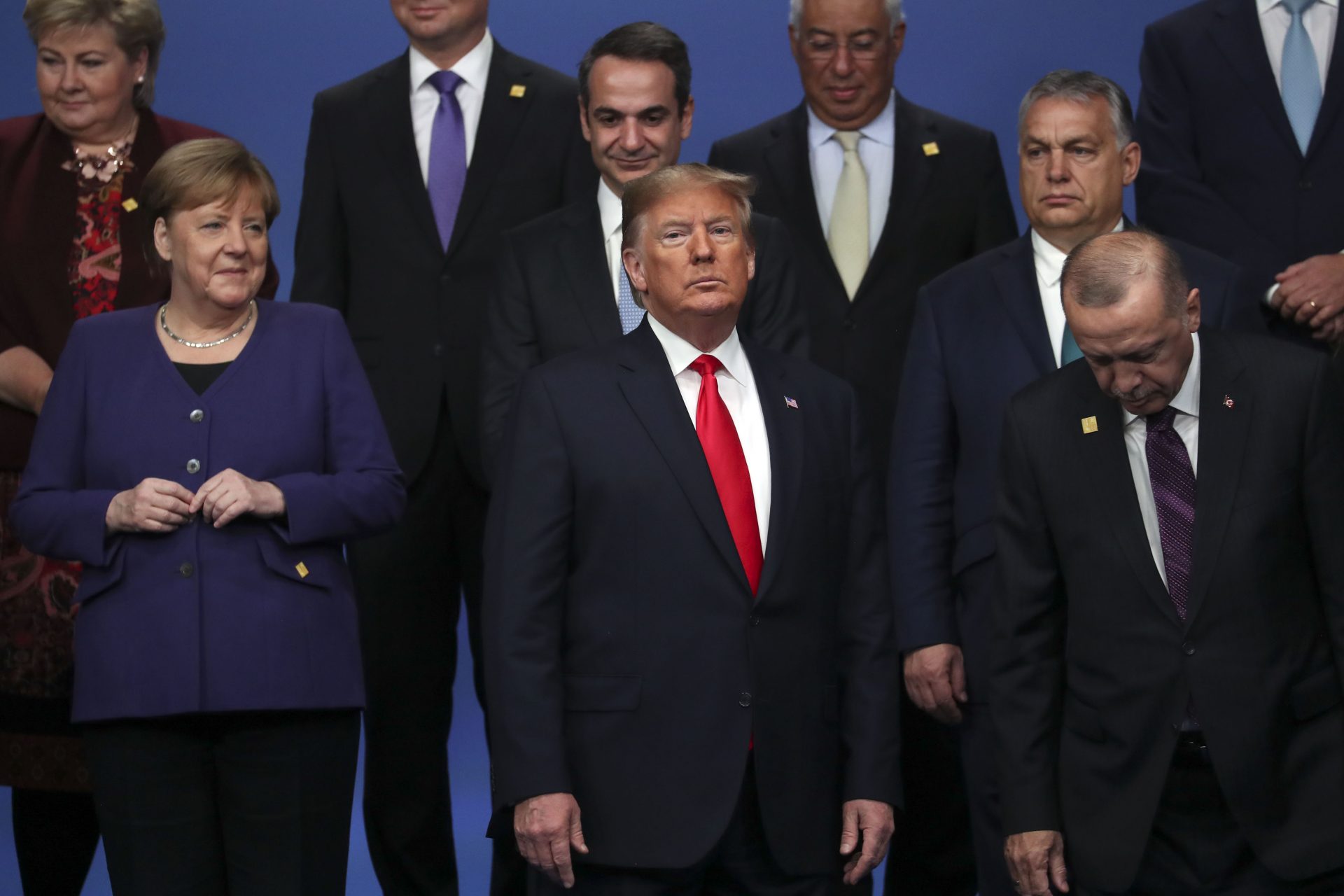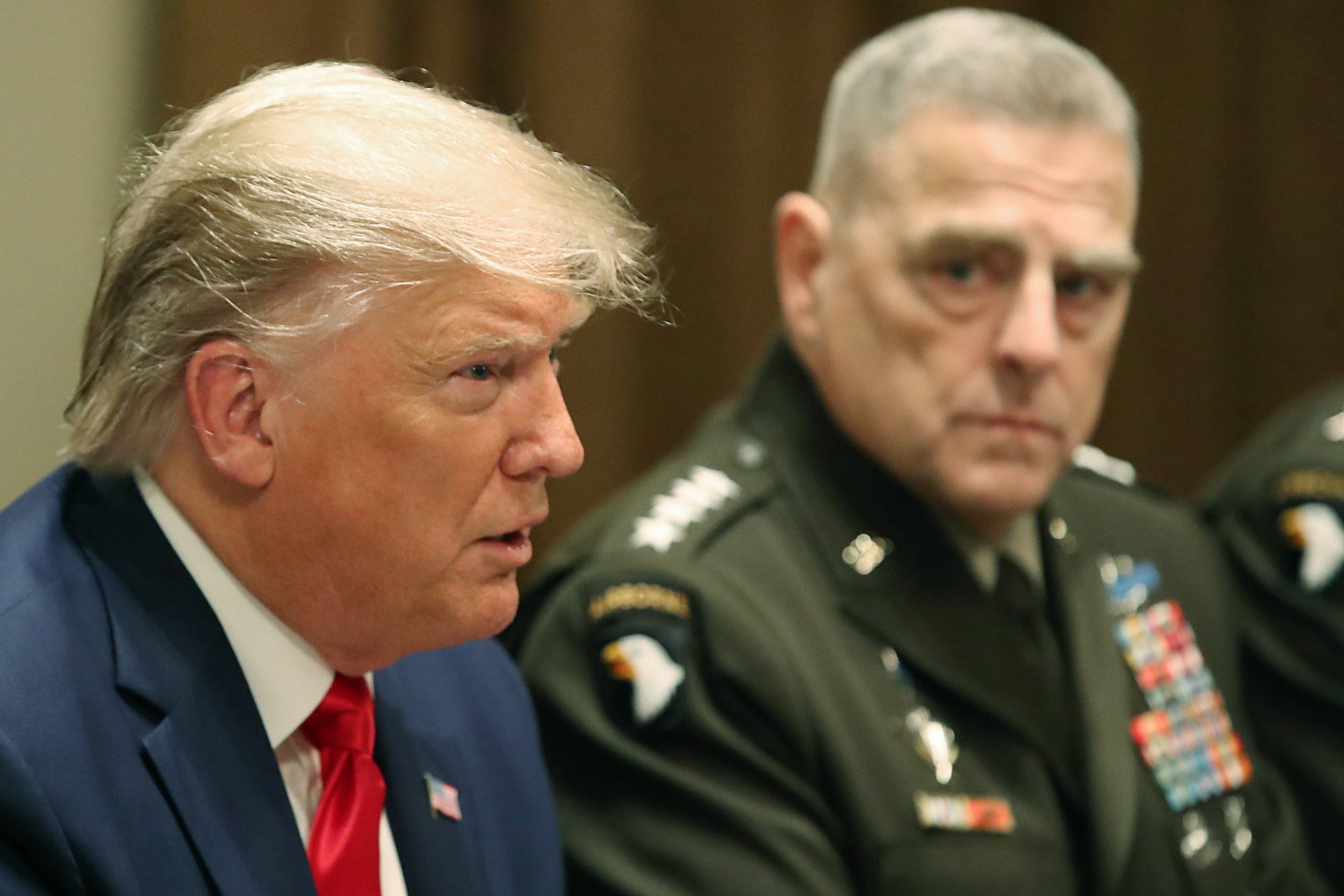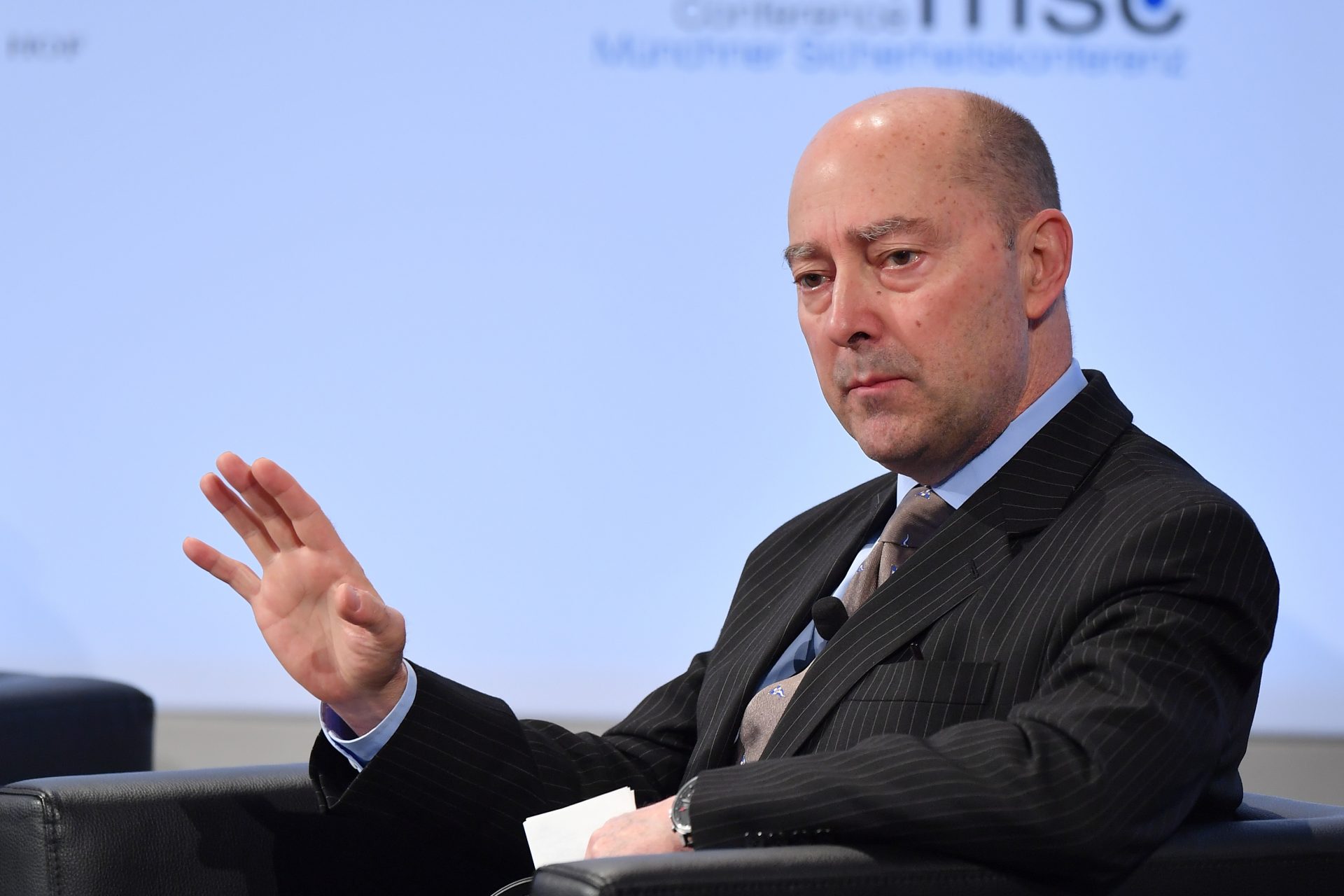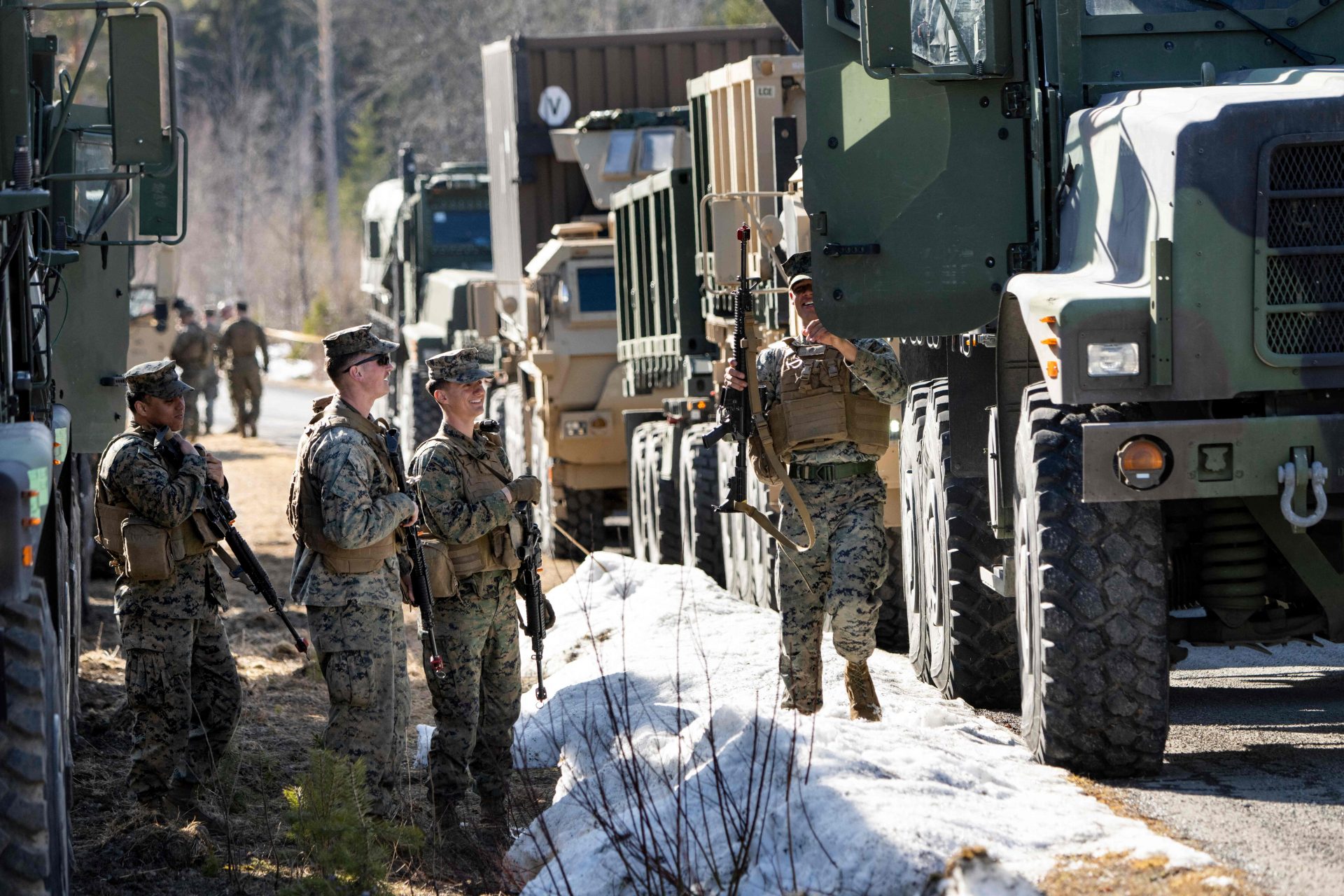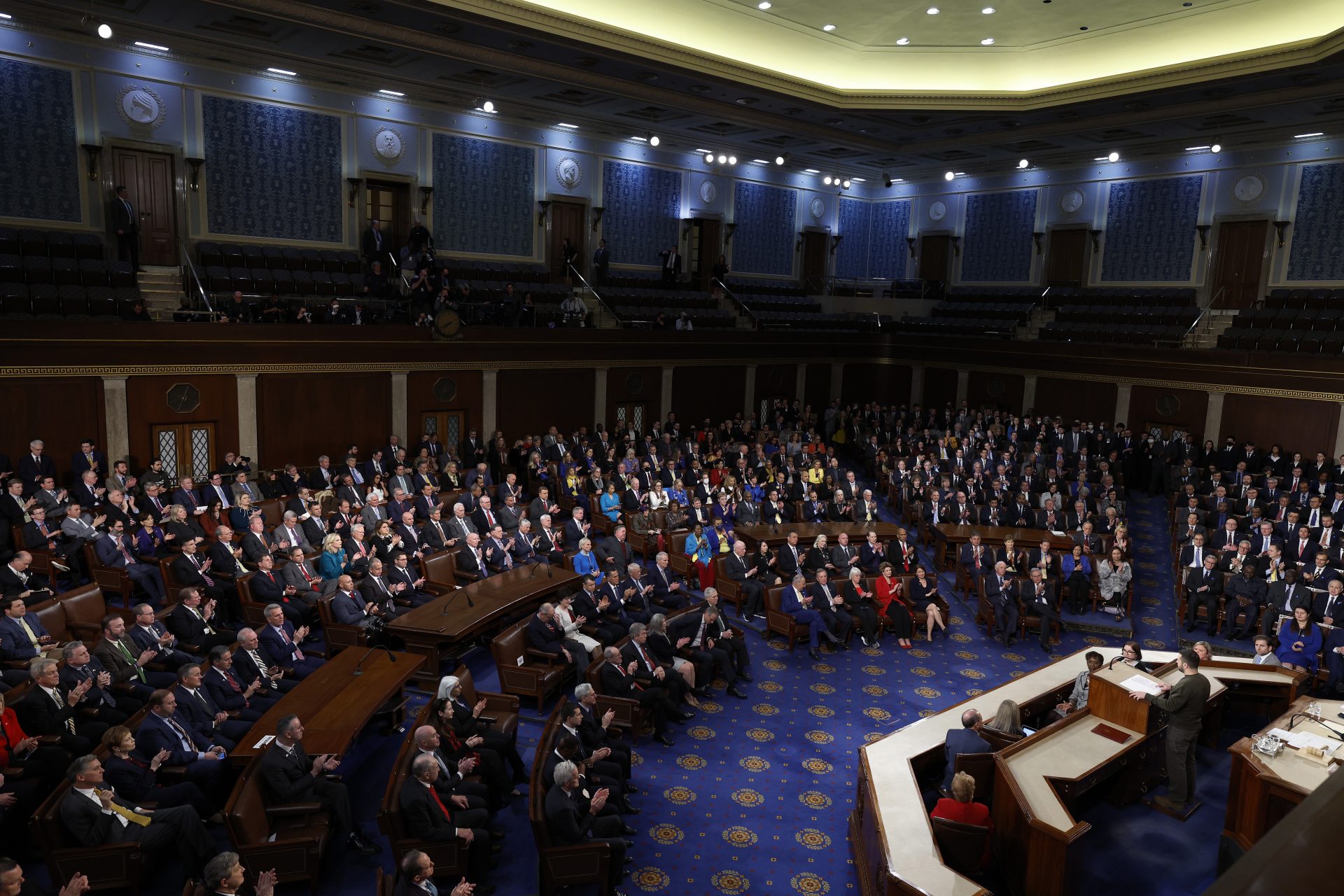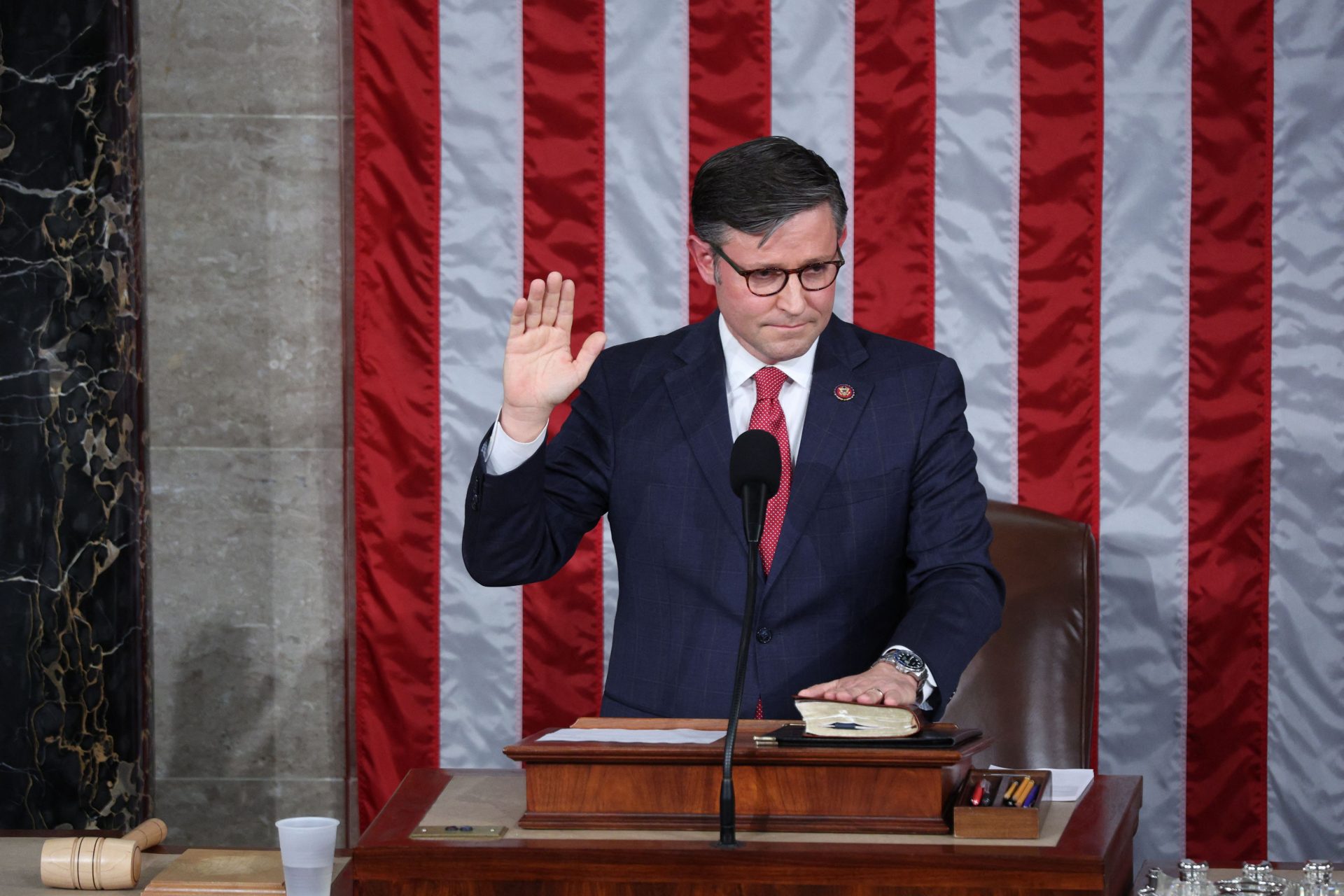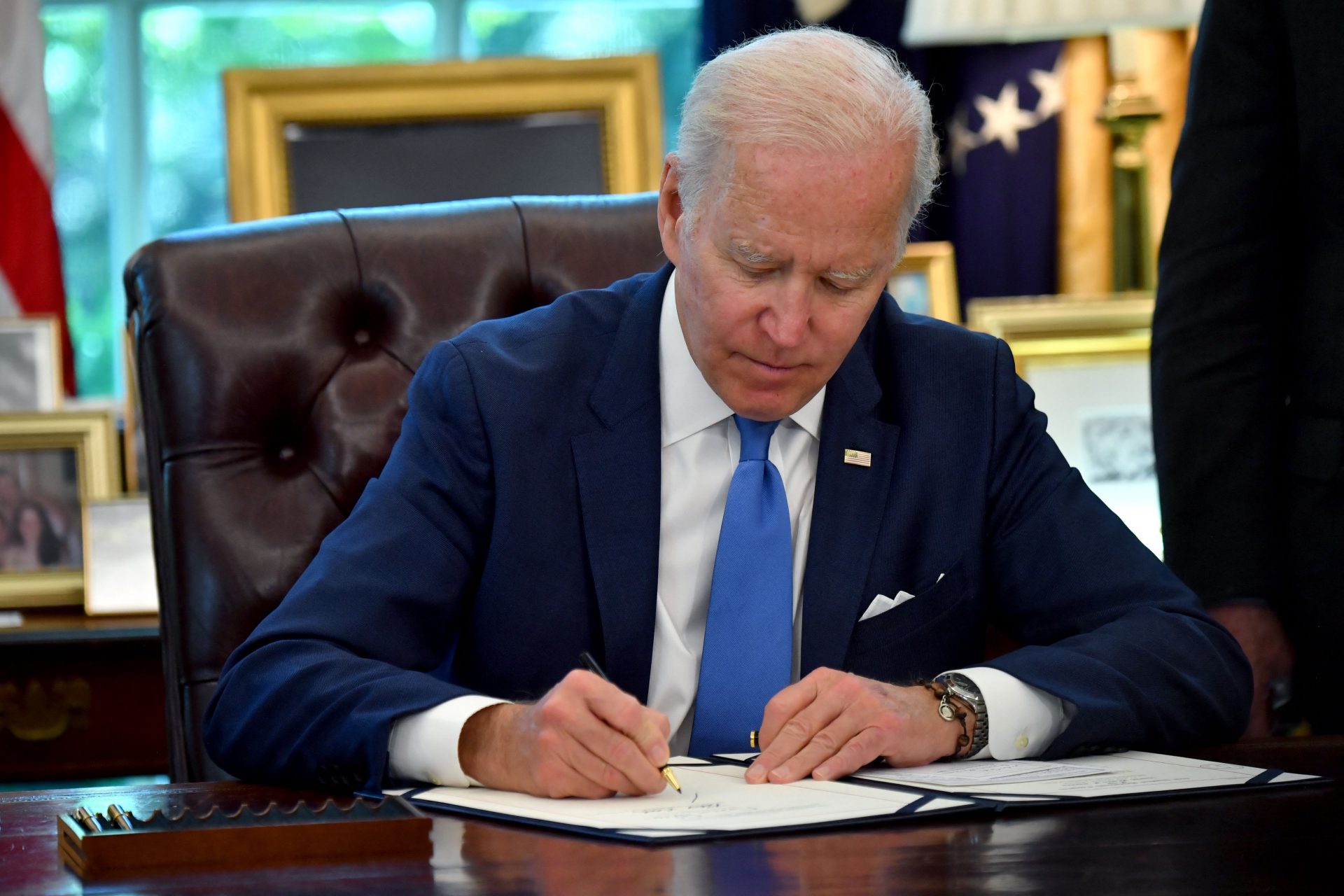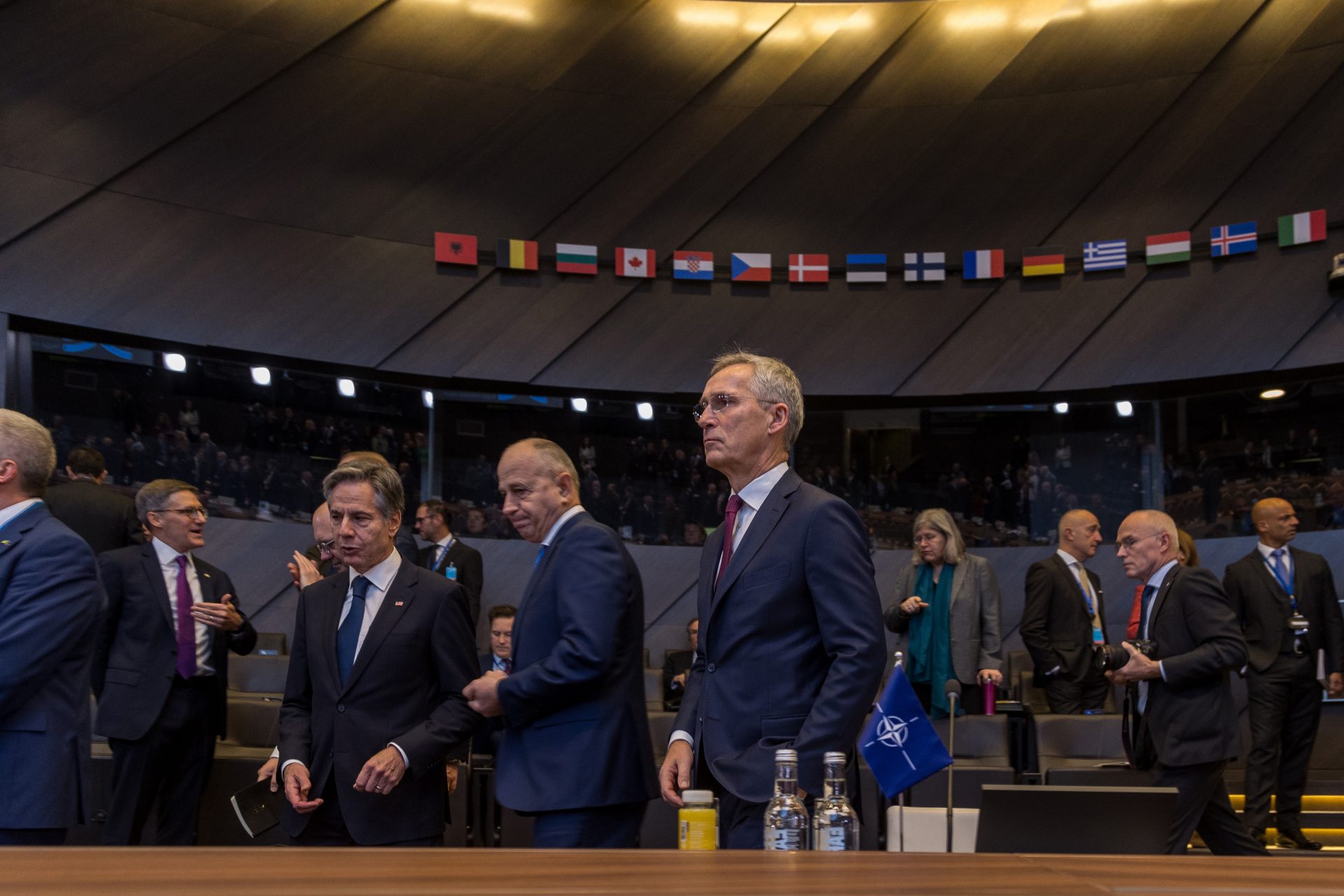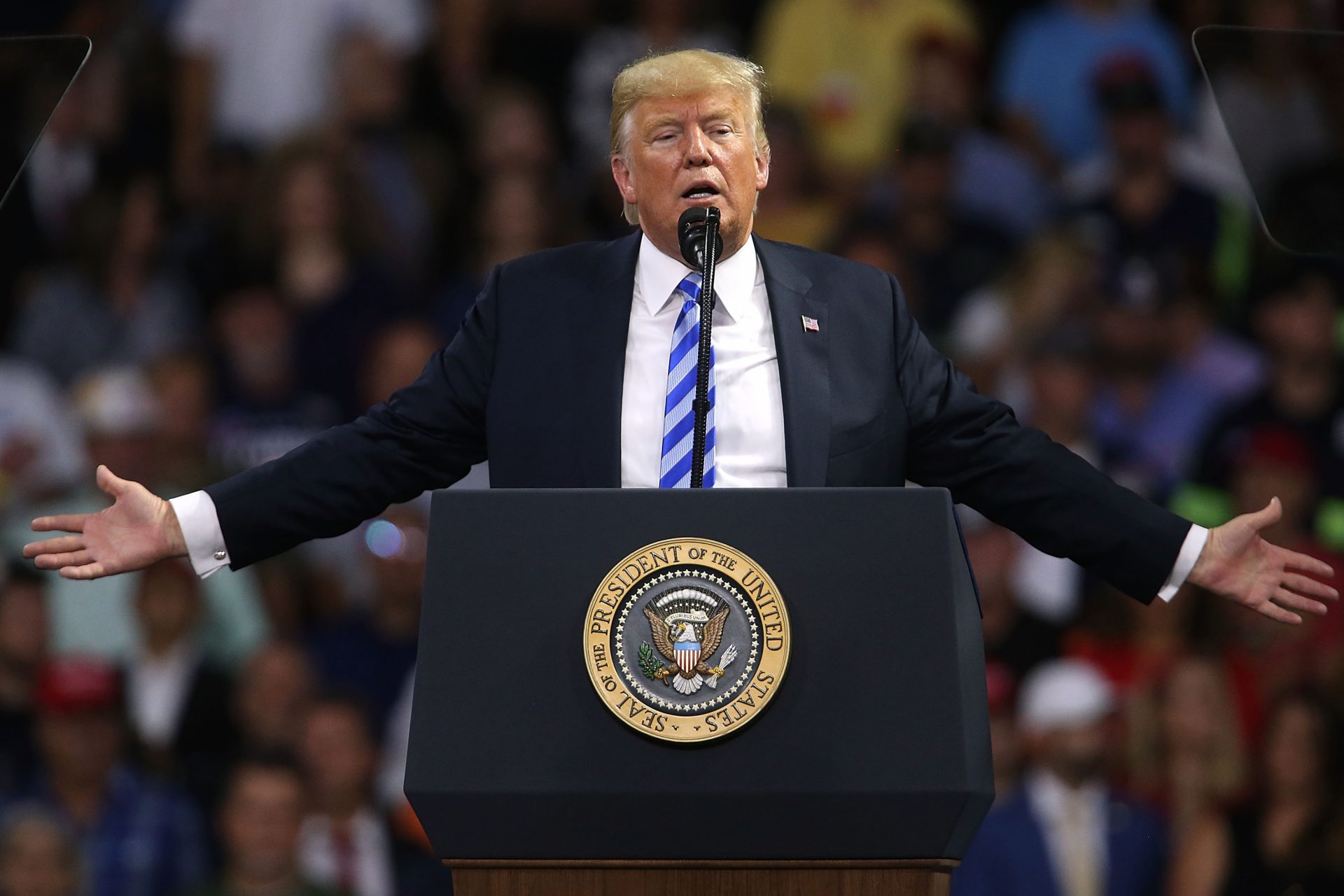Trump can’t pull the US from NATO if he wins in 2024
The North Atlantic Treaty Organization has been a fundamental part of American foreign policy since it was founded in 1949. However, faith in the alliance faltered under former president Donald Trump and his return worried many.
Designed around the idea of providing collective security for the United States and several European nations against the Soviet Union, the North Atlantic Treaty Organization (NATO) became vital to the geopolitical world that emerged from the ruined nations of World War II.
Presidents on both sides of the political aisle in the United States saw NATO as a “force multiplier” according to the New York Times. It was an organization that allowed America to unite with other countries through defensive vows.
By U.S. Army photo by Capt. Christopher Miles, 1-7 FA, 1st Inf. Div., USD-C
However, the emergence of Donald Trump to the political scene in 2016 prompted a lot of Americans began questioning the usefulness of NATO to the United States as a result of the former president’s constant complaining about the alliance.
Trump undoubtedly made a good point about the organization when he complained that the nations making up the alliance weren’t paying their fair sure for the security provided by NATO, a criticism often aired on by the former president.
In 2006, the defense ministers of NATO’s member states agreed that they nations in the alliance should commit at least two percent of their Gross Domestic Product to defense spending according information on the alliance’s website.
Most countries never meet the two percent spending threshold, but it's important to point out that the measure is only a guideline and isn't required. But the issue provided Trump with the political cover he needed to complain about it.
By The White House from Washington, DC - President Trump & the First Lady's Trip to Europe, Public Domain, https://commons.wikimedia.org/w/index.php?curid=79541959
“The United States is spending far more on NATO than any other Country. This is not fair, nor is it acceptable,” Trump wrote on Twitter ahead of one NATO summit in 2018 according to a report from Politico that quoted the post.
By Staff Sgt. Jason T. Bailey, U.S. Air Force
“While these countries have been increasing their contributions since I took office, they must do much more. Germany is at 1%, the U.S. is at 4%, and NATO benefits Europe far more than it does the U.S,” the former president added.
By Bundeswehr-Fotos - originally posted to Flickr as Leopard 2 A5, CC BY 2.0, https://commons.wikimedia.org/w/index.php?curid=11586260
All of Trump’s complaints about the alliance led some to fear that he would work to pull out of it. These fears proved well founded since it was reported by the New York Times in 2019 that the former president had considered leaving NATO.
Senior administration officials told journalists that Trump privately talked about his desire to leave NATO. However, the former president’s ouster from office in 2020 put an end to the fears the U.S. would leave NATO. At least until recently.
Trump has emerged as the likely Republican nominee in the 2024 election, and his rise in the polls against Joe Biden has revealed that the former president could very well win the election—a prospect that worries some European leaders.
“There is great fear in Europe that a second Trump presidency would result in an actual pullout of the United States from NATO,” former NATO Supreme Allied Commander and retired four-star Navy Admiral James Stavridis told the New York Times.
“That would be an enormous strategic and historic failure on the part of our nation,” the retired admiral added. But how likely is it that Trump would leave NATO if he won back the White House in 2024? At this point, we don’t know.
The former president’s campaign website is “cryptic” on the matter according to a recent New York Times report, the website states: “We have to finish the process we began under my administration of fundamentally reevaluating NATO’s purpose and NATO’s mission.”
Trump’s team has refused to elaborate on the meaning of the statement, and that may be one of the many reasons why Congress took it upon itself to pass new legislation that limited a President’s ability to unilaterally withdraw the U.S. from NATO on December 14th.
The United States cannot withdraw from NATO without the approval of the Senate or via an Act of Congress according to The Hill, which would make it nearly impossible for Trump to leave the alliance if he wins a second term.
Efforts to pass the bipartisan bill were led by Republican Senator Marco Rubio and Democratic Senator Tim Kaine. The legislation was included in the annual National Defense Authorization Act and is widely expected to be signed by Biden.
“The Senate’s vote today to pass my bipartisan bill to prevent any U.S. President from unilaterally withdrawing from NATO reaffirms U.S. support for this crucial alliance that is foundational for our national security,” Kaine said in a statement.
“The Senate should maintain oversight on whether or not our nation withdraws from NATO. We must ensure we are protecting our national interests and protecting the security of our democratic allies,” Rubio explained in his own statement on the bill.
Whether or not the former president could find a way around this legislation if he wins the election in 2024 and decides that he wants to withdraw the U.S. from NATO is not known, but it likely won’t stop him from complaining about the alliance.
More for you
Top Stories



